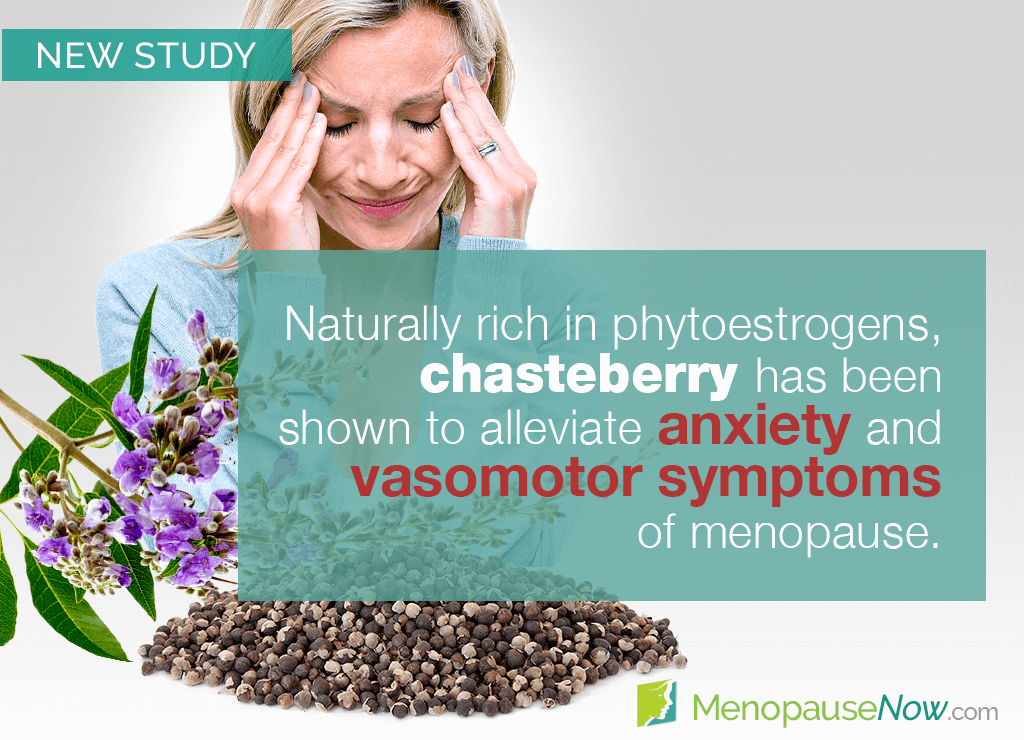Vitex agnus-castus, commonly known as chasteberry, is a phytoestrogenic herb popularly used for a number of health ailments, including menopause discomforts.1 However, there are not many scientific studies that have corroborated the fruit's benefits for women passing through the transition.
That is why researchers from the Kermanshah University of Medical Sciences in Iran conducted this clinical trial to explore chasteberry's effects on relieving menopause symptoms.
Study Design
The trial involved 52 women (48 to 58 years of age) reporting postmenopause symptoms, including anxiety, depression, somatic complications, hot flashes, night sweats, and sexual dysfunction. Their severity was evaluated using the Greene Scale before and after the trial.
Women were randomly divided into two groups and given one of two supplements: the treatment group was given chasteberry extract capsules, while the control group got the placebo capsules. Supplements were to be taken twice daily, in the morning and evening, for eight consecutive weeks.
Study Findings
Researchers observed significantly lower average scores for menopause symptoms in women taking chasteberry capsules They also reported reduced individual scores for anxiety (a score decrease from 9.65 to 2.35), and vasomotor symptoms (a score decrease from 3.73 to 0.46).
The scores for depression, somatic complications, and sexual dysfunction also decreased in the chasteberry group, but not enough to be statically significant.
What Does It Mean?
The results of this clinical trial demonstrate that chasteberry is effective for relieving menopause symptoms. These beneficial effects are most likely attributable to its phytoestrogenic compounds.
Researchers invite further studies to determine the extent of chasteberry's properties for menopausal ailments as well as the underlying mechanism. They also suggest considering the fruit as an effective, safe, and non-hormonal menopause treatment.
Sources
- Korean Journal of Family Medicine. (2019). Comparison of Vitex agnus-castus Extracts with Placebo in Reducing Menopausal Symptoms: A Randomized Double-Blind Study. Retrieved December 12, 2020 from https://www.ncbi.nlm.nih.gov/pmc/articles/PMC6887765/
Footnotes:
- Journal of Advances in Medicine and Medical Research. (2011). Effect of Vitex agnus-castus on Menopausal Early Symptoms in Postmenopausal Women: A Randomized, Double Blind, Placebo-Controlled Study. Retrieved December 12, 2020 from https://www.journaljammr.com/index.php/JAMMR/article/view/15541

